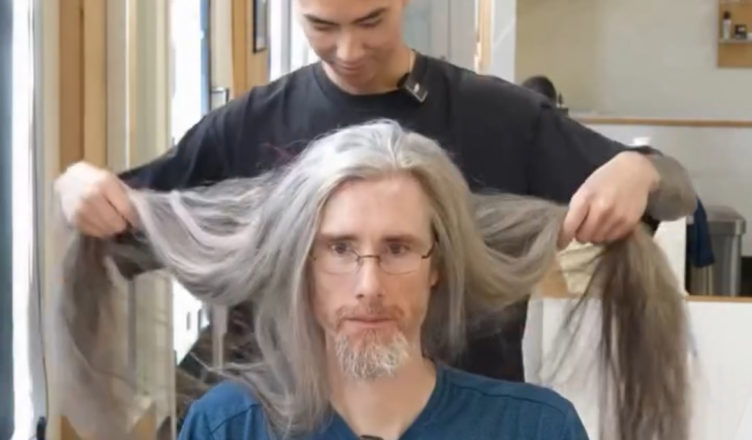For five whole years, Elias hadn’t cut his hair. What started as a lazy summer decision—just to skip one trip to the barber—grew into something unintentional and symbolic. As the months turned into years, his once neatly trimmed hair cascaded past his shoulders, coiling and tangling like ivy left unchecked. People often mistook him for someone much older. Some called him a hermit; others, a ghost of who he once was.
Elias didn’t mind. He had withdrawn from the world after losing his mother, choosing quiet routines and old records over social outings. His hair became a visual diary of his grief—something he carried, visibly and heavily.
Then came the letter.
It was from his niece, whom he hadn’t seen in years. She was getting married in September and wanted her “cool uncle Elias” to walk her down the aisle. That line—cool uncle—echoed in his chest. Could he really be that again?
A week before the wedding, Elias stood in front of a mirror and barely recognized himself. His eyes were still sharp, but buried behind curtains of disheveled strands. That day, he made an appointment.
The barber, surprised by the mop of hair, worked for nearly two hours. When Elias stepped out, something had shifted. His reflection no longer looked like the man who mourned—but the man who had lived, and was ready to live again.
At the wedding, gasps and wide eyes greeted him. His brother did a double-take. His niece cried, hugging him tightly. “You look like you again,” she whispered.
The transformation wasn’t just physical. It reminded Elias—and everyone watching—that sometimes, letting go of what weighs us down is the first step to becoming ourselves again.
